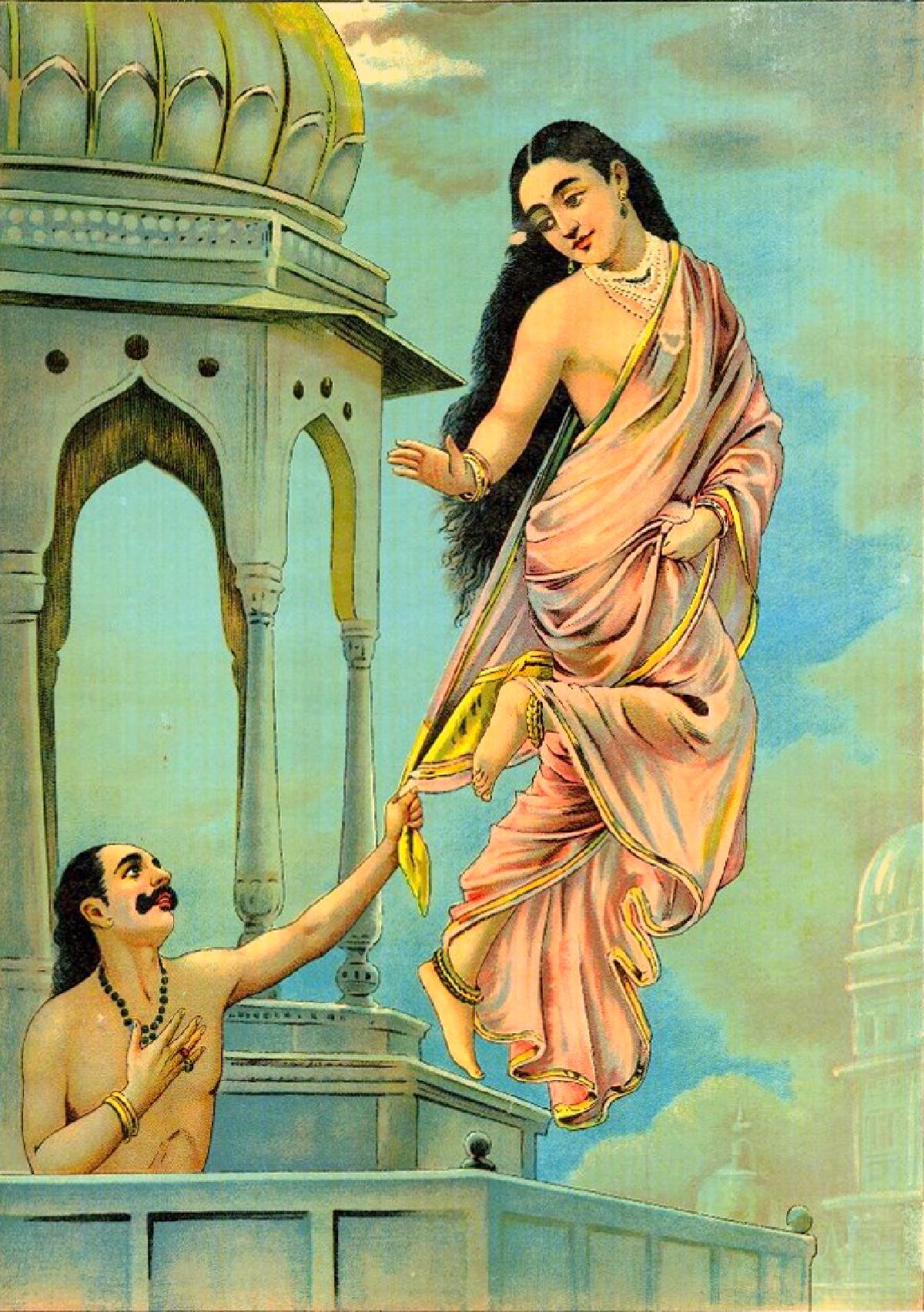I am reading Kālidāsa’s play Vikramorvaśīyam with students this week. We are using the English translation of V. Narayana Rao and David Shulman, published in the Clay Sanskrit Library series. They render the title “How Urvaśī Was Won,” which takes too much liberty with the Sanskrit, since there is neither a word for “how” nor a verb “was won” in the title. The usual rendering is “Urvaśī Won By Valour,” which also reads too much into the Sanskrit; there is no “won by” in the original title.
Moreover, these interpretations of the title do not accord with the content of the play. Urvaśī is not won over by the heroic deeds of Purūravas. She needs no winning over at all; she falls for him immediately upon awakening from a faint. While he did perform an act of valor in saving Urvaśī from demons, her first words are that the demons have done her a favor (uvakiḍaṃ khu dāṇavehiṃ)—she is smitten with the king’s good looks, just as he is by her’s. Their love-at-first-sight pairing is settled very early in the first act, so it would be a poor choice of title for the play as a whole to suggest that it is all about the “winning” of Urvaśī. One might argue that Purūravas loses and “rewins” Urvaśī twice more throughout the play. However, the first reunion (in the forest) has nothing to do with valor, and the second only marginally relates to it.
In Sanskrit, the title is a compound of two words: vikrama+urvaśīyam. Urvaśī is the name of the female lead, so that urvaśīyam would mean “having to do with Urvaśī.” OK so far. Vikrama, however, is harder to understand here. If the lead male, the king Purūravas, were also known as Vikrama, we could understand the title as a simple pairing of their names: [The Play about] Vikrama and Urvaśī. Yet to my knowledge, Purūravas is never known as Vikrama. The word vikrama is used twice in the first act in the straightforward sense of valor/heroism/power, and never thereafter (aside from the colophons).
My suggestion* is that we understand the title to be punning on at least two meanings. Vikrama may be short for Vikramāditya (sun of valor), which is a title of several ancient Indian kings, including the probable patron of Kālidāsa, Chandragupta II. We might then render the title “The Vikrama Story of Urvaśī” in the sense of the version composed under Vikramāditya. Also possible is to understand urvaśīyam in the sense of “concerning the dawn” — urvaśī literally means “widely extending,” which is an epithet of the goddess of dawn. In this sense the title could be rendered “On the Dawn of Valor” or “On the Dawn of [King] Vikrama.” I readily admit that this latter idea is weak for the same reasons I stated above: that valor is too far from the central themes of the play.
These are just some initial thoughts. I would be grateful for any tips on alternative understandings of the title. Or, if the ideas here have already ocurred to other scholars in publications, I would appreciate any such references.
*Addendum: I now see that M.R. Kale took Vikrama to be an allusion to Vikramāditya over one hundred years ago, in his 1915 The Vikramorvasiya Of Kalidasa. It is a pity that Rao and Shulman made no mention of the issue of different interpretations of the title.
